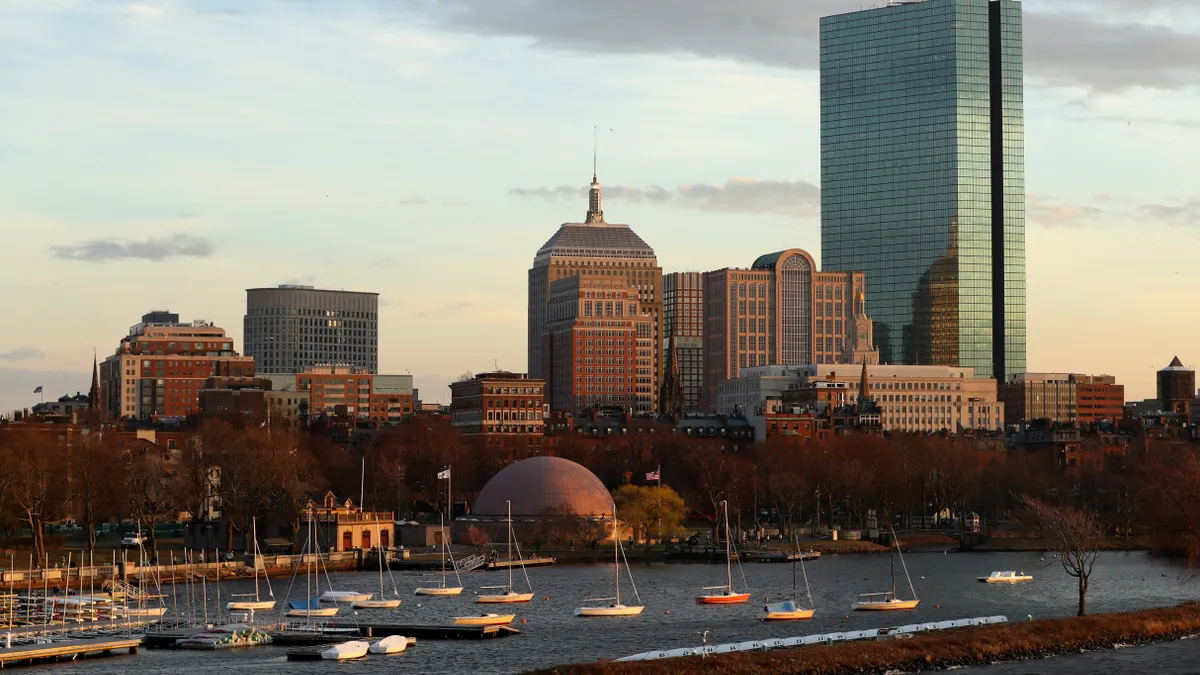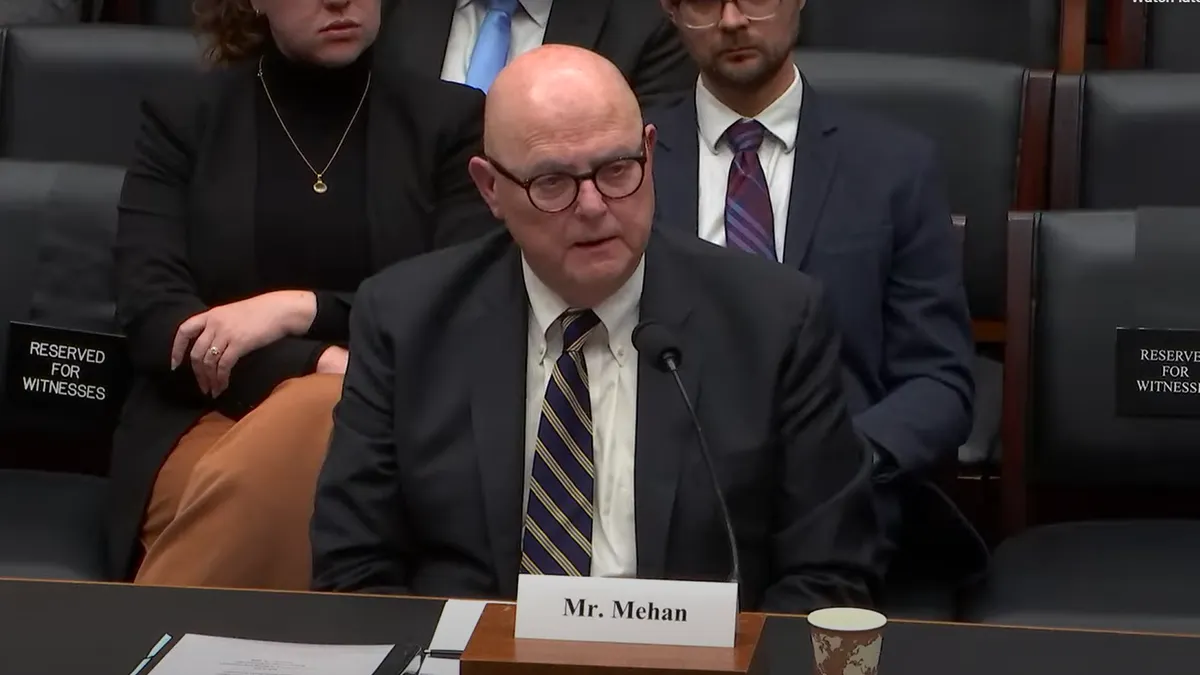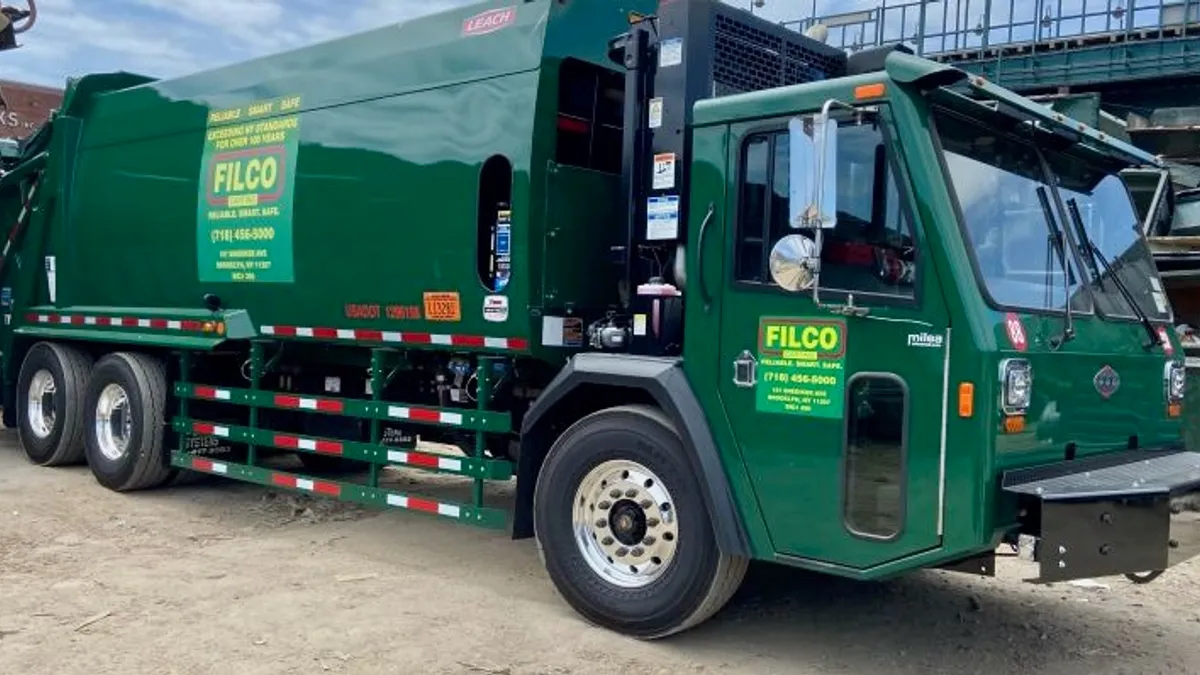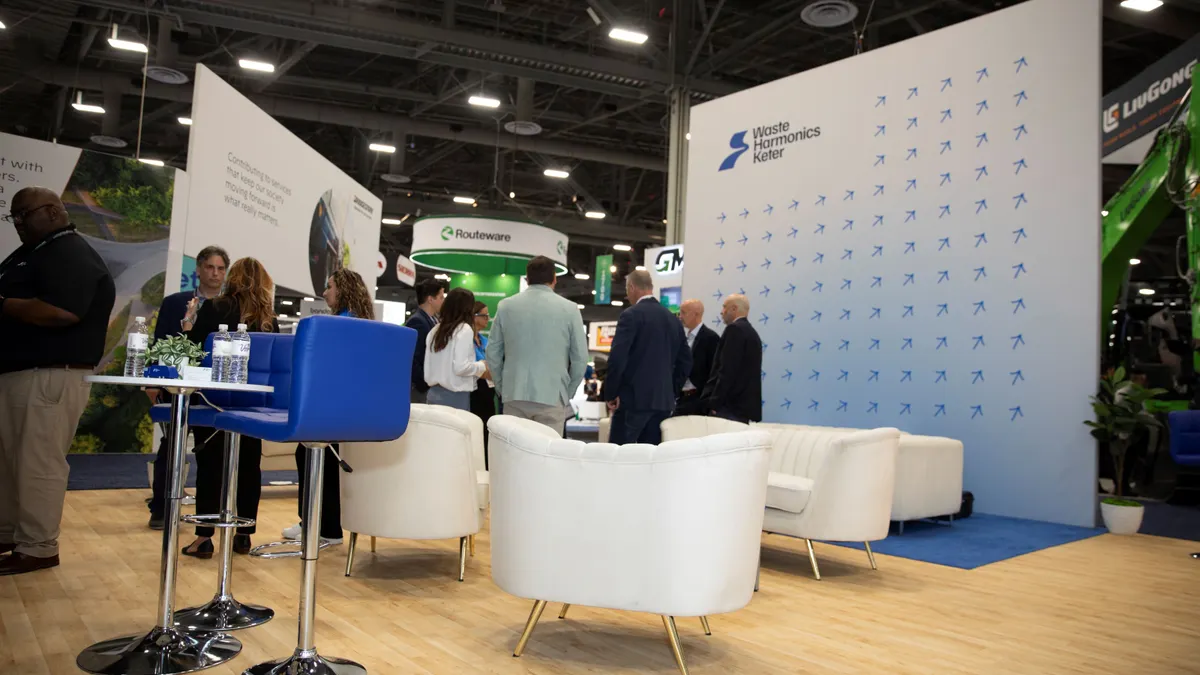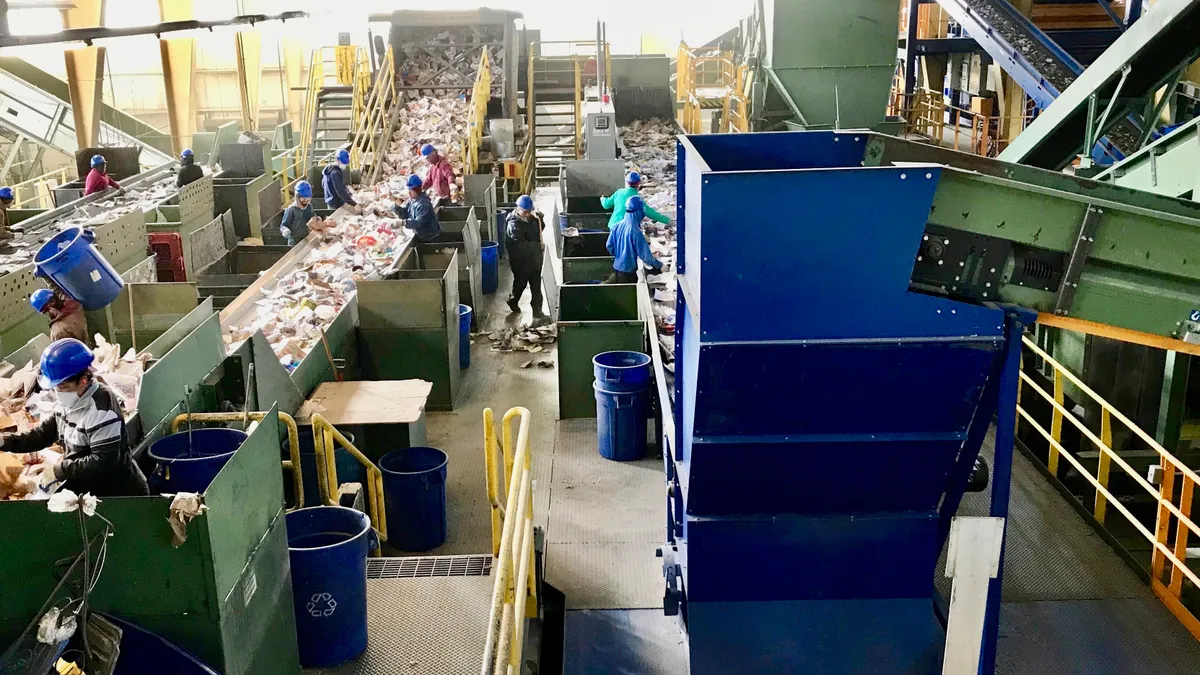Nearly two years into its zero waste plan, Boston is taking additional steps to build out infrastructure for diverting textiles, organics and other materials from disposal.
Boston previously set targets to hit 80% recycling by 2035 and 90% by 2050, with dozens of near- and long-term plans along the way. At the time, the city's recycling rate was estimated at 25%. Since that plan was finalized in 2019, the city has expanded yard waste service and released requests for proposals and information on food scrap recycling but has not made any large-scale changes. While the pandemic delayed certain efforts, and some environmental advocates believe progress could be further along, city officials maintain it's on track.
“We pretty much stuck to everything we’ve planned, and minus a couple delays, we’re offering all the programs that we intended to and we’re moving right along," said Brian Coughlin, superintendent of waste reduction for Boston's Public Works Department.
Coughlin noted that unlike many other cities, Boston did not suspend programs during the pandemic's worst months and kept services going under difficult conditions. At the peak, residential waste and recycling volumes were up more than 25%. They've since declined to around 3% to 5% above average levels. As Boston looks to reduce its waste generation, with the industry already speculating about higher pricing in the city's next disposal contracts, every bit that can be diverted is considered a priority.
Textile expansion
The pandemic disrupted Boston's plans for on-call textile collection last year, but the city has since moved ahead with expanding its drop-off network. According to Helpsy, the contracted service provider, nearly 23 tons of textiles were collected in April, and that could increase in the coming months.
With support from Public Works, Helpsy has deployed close to 50 bins throughout Boston and is working separately with Boston Public Schools on additional locations. Helpsy pays to rent space for the bins, and it also pays a royalty based on the amount of material collected, making the program a low-cost option.
Textile markets saw a turbulent period last year during the pandemic's initial months, but Helpsy Co-founder Dan Green said "prices are as high as I’ve known them to be" for secondhand clothing and also strong for wiping rags. While Boston's curbside program delay wasn't part of the plan, Green said it's actually provided an opportunity to build out more infrastructure in the region.
"Thanks to the Boston agreement, other local municipalities have been interested," said Green, citing new or upcoming contracts with Massachusetts cities including Newton, Malden and Salem, as well as Stamford, Connecticut. "The more we do smaller communities, the better we’ll be able to profitably ramp up Boston, anticipate what the local demand is, understand the operational issues."
Coughlin said Boston's goal for drop-off bins is to have "as many as we can across the whole city" and then expand into on-call collection. Additional regional interest is expected as the Massachusetts Department of Environmental Protection works toward a disposal ban on textiles. Helpsy plans to open a new processing center in the Boston area next year, following existing facilities in New York and New Jersey, and hire hundreds more people in the near future.
Organics tipping point
Last week, Boston launched a civic design competition seeking proposals for "customized compost bins" to support the expansion of its Project Oscar drop-off program. The Mayor’s Office of New Urban Mechanics, working with other agencies, will select six proposals that focus on addressing visual identity, accessibility or contamination. Teams will receive up to $5,000, with funding from TD Bank and local nonprofit The Trustees.
Project Oscar, started as a pilot in 2014, currently has five locations in the city, and Coughlin said "we are going to increase the accessibility citywide." The city is soliciting public feedback on where to place new bins, and final numbers haven't been determined. This will also coincide with a new service contract set to take effect in July.
Conor Miller, CEO of current contractor Black Earth Compost, said the pilot has been "very successful" so far. He estimated the bins yield about four tons of organics per week, with the highest volumes coming from the Jamaica Plain neighborhood. While one initial location was closed due to contamination issues, Miller said the city's requirement for residents to pass an online test before receiving the bin lock combination has worked well. Still, bins can often be filled beyond capacity and he sees the need for greater access.
"They need a real expansion because there’s more people that want to compost than the budget allows for," Miller said.
More broadly, demand for Black Earth's residential subscription service has been up in the region. Miller said that because subscription service and free drop-off options often appeal to different niches of the population, he sees ample room to expand both in Boston.
The city never moved forward on a possible partnership model that could have involved partial subsidization of subscription service for residents, but Miller said Boston's consideration of such a model inspired others in the region. Black Earth has since lined up similar agreements with municipalities such as Belmont, Brookline, Newton and Wakefield. While the company has accounts throughout the area, Miller said an official city partnership can carry more weight with prospective customers and help local budgets.
“That just sounds more powerful than small companies like us," he said. "It doesn’t cost them any more, it actually saves them money on tipping fees."
Coughlin said Boston still hasn't ruled out doing this, or pursuing a broader curbside organics collection program, and he views the Project Oscar expansion as the next step in raising resident awareness.
"It's something that we want to make sure we’re doing correctly. It's such a project, and it’s going to take a bigger team," he said. "My biggest fear is getting a curbside [program] together and just putting bins out and it's contaminated material and we’re not reducing anything, we’re just adding costs for disposal."
Next steps
Funding and internal infrastructure are also key factors on the city's mind as it looks to scale up zero waste plans.
Public Works is currently hiring a waste reduction program manager to expand operational capabilities for delivering new programs, and the city's proposed FY22 budget calls for new funding to "create a Zero Waste Drop Off Center and invest in efforts to provide garbage disposals to residents as well as Zero Waste and Green Jobs training."
Coughlin said the new center would supplement drive-in events the city hosts five times per year, often with high demand, and provide more regular options to recycle a wider range of materials not accepted curbside. Garbage disposals are being considered as another option for organics management in large buildings, and the job training program could potentially help implement new programs and educate residents.
Kirstie Pecci, director of the Conservation Law Foundation's Zero Waste Project, said she hopes Boston can ramp up the pace of its zero waste efforts sooner than not. Her group was among multiple organizations that spent years advocating for a zero waste plan and were heavily engaged in the stakeholder process.
"So many of the staff at the City of Boston took this very seriously, and there’s a lot of really great program ideas in the plan. We want to start seeing some of those taking off," she said. "This doesn’t seem to be at the same scale."
Pecci said Boston's expanded textile and organics drop-off options were positive, but she opposed the use of garbage disposals and believes more organics collection options are needed in the near term.
“While drop-off programs can be a really nice first step, they’ve done that already. Now it’s time to really move into giving people the option of curbside," she said.
Coughlin said more resources will help drive progress, and he's also focused on ensuring zero waste plans are being adopted throughout the city government. "If we want the public to be doing certain things, we need to get our own house in order first."
Boston's upcoming mayoral election is another potential factor, but regardless of the outcome, the zero waste target is expected to remain a priority. "This is a great time for the city to figure out what they should do next because they’re going to have a new mayor who’s probably going to be interested," said Pecci. "I think that the residents of Boston care very deeply about these issues."


